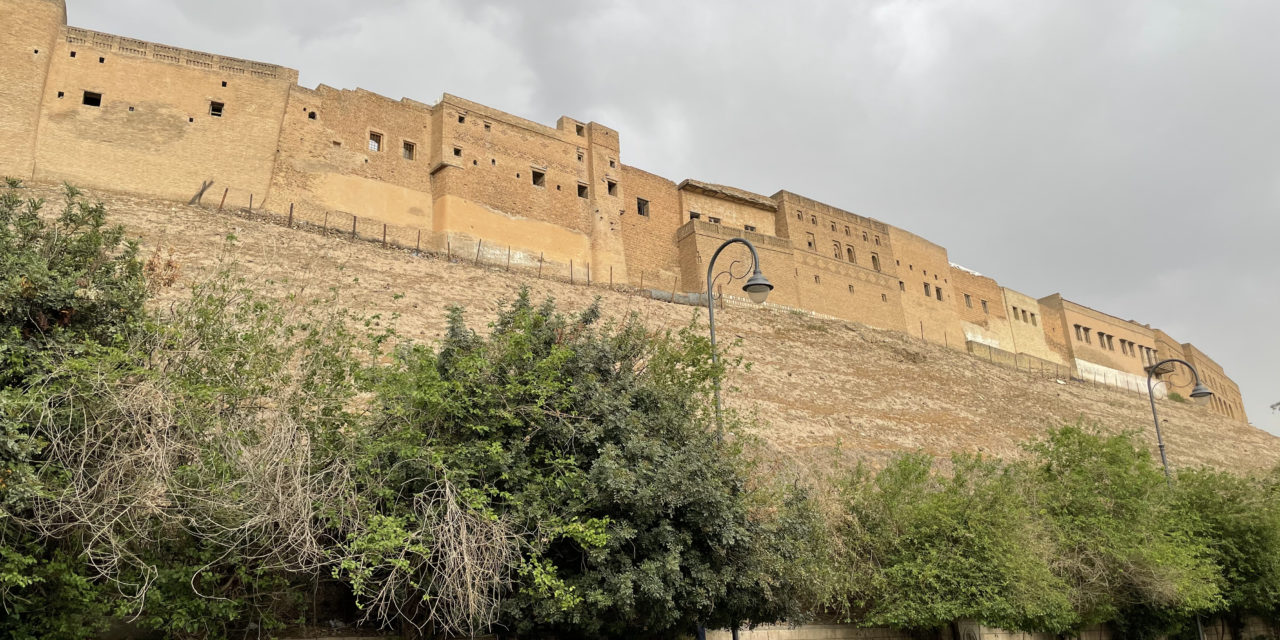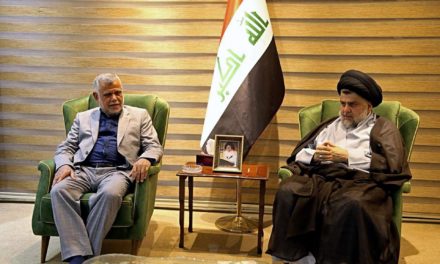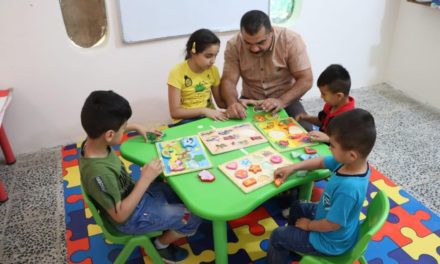Much has been written about Iraq since the 2003 invasion, occupation, and ensuing turbulent transition to democracy. Twenty years later, analysts, academics, and activists are reflecting on the legacies and impacts of this invasion. Some of these reflections have included ‘Iraq’s minorities’ – a problematic way to refer to minority and minoritized communities in Iraq because it denotes the Iraqi state’s possession or ownership of these groups who have inhabited this land long before the modern entity of Iraq and on whose continuous erasure the modern Iraqi state is built. Even worse, these reflections label all minoritized communities as ‘minorities’ without a recognition of Indigeneity or the processes through which these communities and nations have become minorities on their ancestral homelands. For Assyrians, this process has included genocide, displacement, dispossession, and targeted ethnic cleansing in an attempt to erase or assimilate them in the making of ‘Iraq,’ both before and after 2003. More importantly, labelling Assyrians as minorities is not only a political mechanism used to erase their ties to their land, heritage, and culture, but it denies them their sovereignty as a nation.
This process of rendering Assyrians a numerical and political minority is not merely historical; it continues into the present day as it has set the stage for their political, cultural, and economic marginalization in post 2003 Iraq. The mass violence that has engulfed Iraq since the invasion has been catastrophic for all everyday Iraqis. However, for nations like Assyrians, it has meant the risk of complete decimation. This is reflected in their significantly and increasingly dwindling numbers because of targeted persecution within the security climate of the last twenty years. Assyrians in Iraq numbered approximately 1.5 million before the 2003 invasion. By June 2014, they numbered below 1 million and today, it is estimated that the Assyrian population numbers no more than 200,000.
Iraq’s current sectarian power sharing quota system – a legacy of the invasion and occupation – has disenfranchised groups like Assyrians and other minoritized communities. While laws exist to ensure ‘equal’ participation, in practice, even ethnically Assyrian-majority towns like Ankawa in Erbil, fill administrative positions with ‘Christian’ representatives selected by the Kurdistan Democratic Party (KDP) whose loyalty lies with the KDP and not the people of Ankawa. Similarly, electoral fraud and expanding eligibility criteria for the ‘Christian’ seats to everyone both in the Kurdistan Region of Iraq (KRI) and the rest of Iraq meant that the small number of Christian voters could not choose their own representatives and seats were won by those who are supported by major parties, resulting in the near-complete elimination of independent Assyrian political representation in Iraq’s 2018 Parliamentary elections. This reoccurred in the 2021 elections, which led to the Babylonian movement securing all the quota seats reserved for ‘Christians.’ A loophole in the Iraqi Electoral Law has similarly been exploited by major parties so that unrepresentative and illegitimate MPs win allocated ‘Christian’ seats. Reducing Assyrians to ‘Christian’ voters disenfranchises them as Indigenous, constraining their ability to have political parties that reflect their politics as Indigenous sovereign nations. Moreover, by creating and controlling Christian Assyrian proxy organizations and rewarding loyalty with resources unavailable to independent Assyrian parties, the sectarian nature of the quota system disenfranchises Assyrians further by allowing non-Christians to vote for parties that do not represent ‘Christians.’ This brings us back to the issue of ‘minority’: this quota system is based on numbers without any context or mitigation of Assyrians’ dwindling numbers in post-invasion Iraq or prior to this as Assyrians have often been forced to flee Iraq in disproportionate numbers to the rest of the Iraqi population. This also brings us to the issue of identity and Indigeneity.
Identity in every state is often a fraught and contested terrain. When most Iraqis are asked about their culture, history, and heritage, they proudly reference the hanging Gardens of Babylon or Iraq as the ‘Cradle of Civilization’ or the birthplace of writing. This claim to ‘ancient’ heritage is entrenched in Iraqi society but is also embedded within the national narrative of who Iraqis are or more accurately, who they perceive themselves to be. Nowhere is this more evident than the Constitution of the ‘new Iraq’ that was ratified in 2005 where Mesopotamian heritage is appropriated so that all ‘Iraqis’ are inheritors of Assyrian heritage and culture. Since its inception and throughout the modern period until 2003, the Iraqi state’s nation-building model has included the simultaneous appropriation of Mesopotamian heritage and the erasure of Assyrian Indigeneity. This is especially evident today in the KRI, which geographically sits directly on top of Assyrian traditional territory, animating the KRI’s relentless drive to label Assyrian heritage as ‘ancient Kurdistan’ in an attempt to Kurdify the region in the making of a Kurdistan. One example of this is the attempt to curate an exclusively ‘Kurdish’ identity in the claiming of the ancient Assyrian Citadel in the city today known as Erbil (Hawler in Kurdish) as part of ‘Kurdistan.’ It is not surprising that there was intense opposition in post 2003 Iraq both in Baghdad and in the KRI to recognize Assyrians as Indigenous. Both projects involve intense debate and contestation over who belongs, and the recognition of Assyrian Indigeneity would effectively unravel the state-building projects in both Baghdad and the KRI as they are currently imagined.
Moving forward, Iraqi Arabs and Kurds will invariably continue to forge their identities and political futures. So far, these political projects have denied Assyrian Indigeneity and included Assyrians not on their own terms. Regardless of this denial, Assyrians are historically Indigenous to this land and are entitled to not mere recognition or minority rights, but to self-determination as a sovereign nation as outlined in international law. Their ability to govern themselves free from outside influence or power, to safeguard their heritage and culture, to perpetuate themselves and their identity need not coincide with their own state, which is why Indigeneity is often feared and resisted across the globe, not just in Iraq. But moving forward towards a just and sustainable future must include a recognition of Iraq as a state with a responsibility to the Indigenous Assyrian nation on whose land the state has been built and a recognition of the KRI as being located on contested land. More than recognition, there needs to be a path forward that is forged through nation-to-nation relations, not through the current system of displacement and land theft that is premised on subjugation and domination of non-majority groups. Perhaps more than a so-called Iraqi ‘nationhood’ or ‘unity’ which will inevitably mean erasure for non-majority groups, Iraqis must strive for an embracing of plural nationhood(s) and building relationships premised on mutual respect, justice, and peaceful coexistence.
This essay is part of a special series – Iraq after 2003: The Voices of Iraqi Women

Mariam Georgis
Mariam Georgis is originally an Assyrian from Iraq and currently resides in and is sustained by Michi Saagiig Nishnaabeg and Haudenosaunee territory (Canada). She is an incoming Assistant Professor of Global Indigeneity in the Department of Gender, Sexuality and Women’s Studies at Simon Fraser University. She holds a PhD in Political Science from the University of Alberta. Her research is grounded within Indigenous and decolonial feminist approaches to global politics, critical security studies, global colonialism and decolonization, violence and state-building, and politics of southwest Asia (Middle East).










